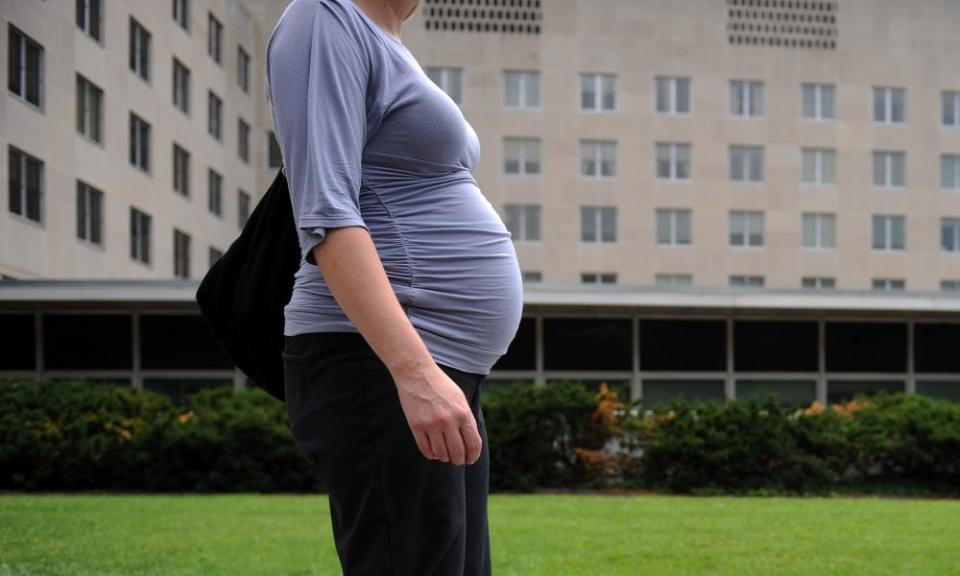UK lobbies for trans rights in UN treaty but allows term ‘pregnant women’

The UK government says it has lobbied for the rights of transgender people to be protected in a UN treaty but that it has not objected to use of the term “pregnant women”, as suggested in previous reports.
There have been calls by campaigners, backed by the British Medical Association, for the expression “pregnant people” to replace “pregnant women” so that it does not exclude trans or intersex men.
Over the weekend, it was reported that the Foreign Office had written to the UN urging it to make the change to the International Covenant on Civil and Political Rights, which states that the death penalty “shall not be carried out on pregnant women”.
But a Foreign Office spokeswoman said it had not asked for the contentious words women or woman be expunged.
“The UK does not object to the use of the term ‘pregnant woman’,” she said. “We strongly support the right to life of pregnant women, and we have requested that the human rights committee does not exclude pregnant transgender people from that right to life.”
There have been two known cases of transgender pregnancy, according to the Times.
The proposed replacement of the term “pregnant women” has met with some resistance, including from some feminists, who believe it undermines their sex. Writing for the New Statesman last month, Victoria Smith said gender neutrality “shifts the focus away from gender as a means by which female bodies are controlled and problematises bodies themselves”.
The Foreign Office intervention comes as figures published on Monday show that the number of children who want to change their gender continues to rise.
Between April and September this year, 1,302 children – 50 a week – were referred to the Tavistock and Portman NHS trust gender identity development service (Gids), according to figures obtained by the Mirror under Freedom of Information legislation.
They included 82 children under 10, among them two four-year-olds. The overall number of referrals is more than a third (35%) up on the equivalent period last year, when there were 965 referrals. However, Gids, the UK’s only specialist NHS provider of gender identity support for under-18s, noted that the rate of growth was slowing. In 2014-15 there were 697 referrals and in 2009-10 just 97.
Dr Polly Carmichael, Gids director and consultant clinical psychologist, said: “If the same rate of referrals maintains through the year, we’ll see approximately 2,600 referrals in 2017/18. This would represent the lowest percentage increase compared to the year previous since we began publishing referral figures in 2009 and may indicate that we’re reaching a plateau in referral figures.
“There is no single explanation for the last 10 years’ increase in referrals to our specialised service, but we do know there has been significant progress towards the acceptance and recognition of transgender and gender diverse people in our society, coupled with greater knowledge about specialist gender clinics and support available.”
Last week, Theresa May pledged to press ahead with plans to let people officially change gender without medical checks. Speaking at the Pink News awards dinner, May said she was committed to improving trans rights. “We are determined to eradicate homophobic and transphobic bullying.
“We have laid out plans to reform the gender recognition act, streamlining and demedicalising the process for changing gender because being trans is not an illness and it should not be treated as such.”

 Yahoo News
Yahoo News 